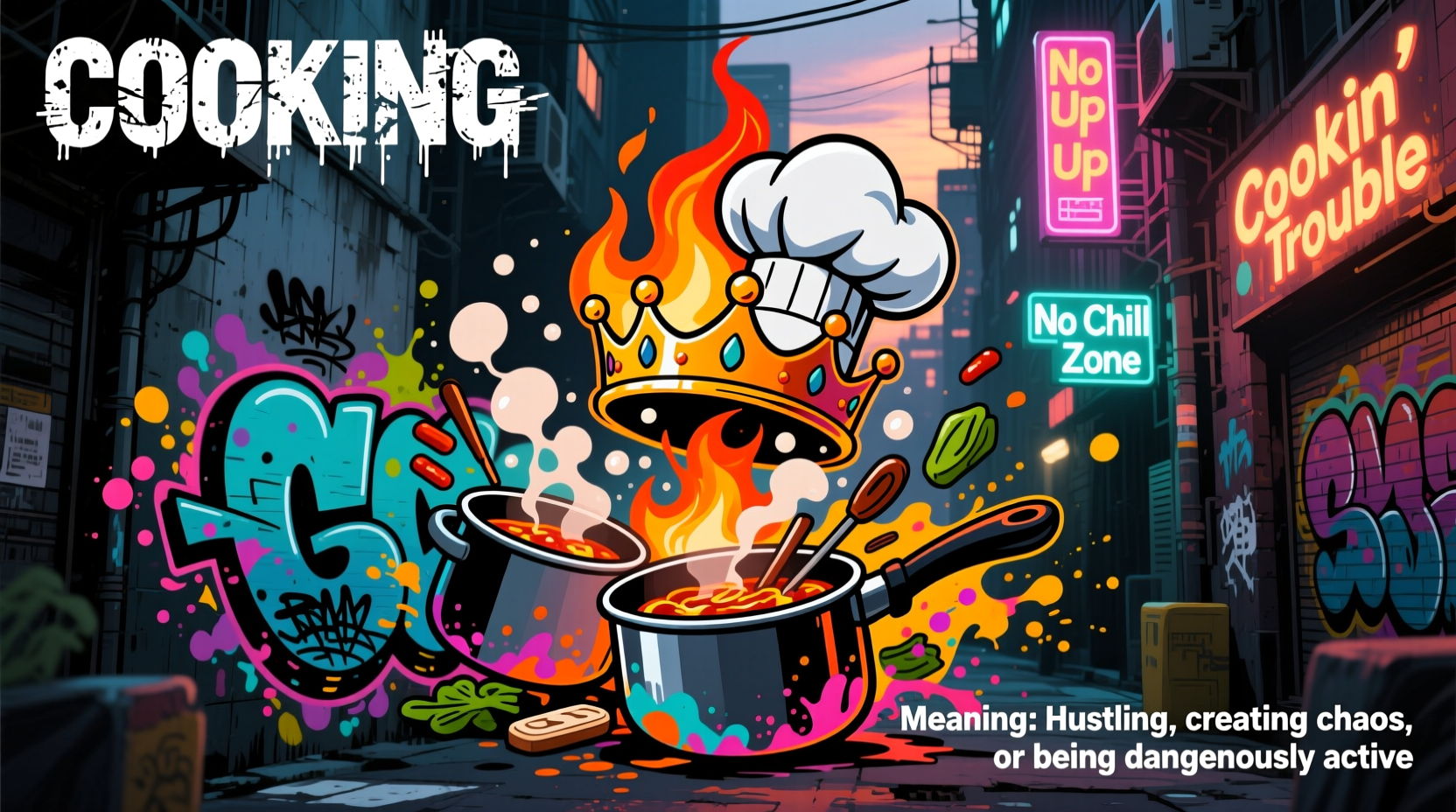Ever heard someone say “Let’s get cooking!” and wondered what they really meant? You’re not alone. While “cooking” traditionally refers to preparing food, this term has sizzled its way into everyday slang with a completely different flavor. Understanding this shift helps you navigate casual conversations, sports commentary, and even workplace banter with confidence.
What “Cooking” Really Means in Modern Slang
When someone uses “cooking” as slang today, they’re almost always describing a situation where things are moving forward successfully, with energy and efficiency. Think of it as the verbal equivalent of watching a perfectly timed kitchen operation – everything’s coming together just right.
Here are the most common slang interpretations you’ll encounter:
- "Performing exceptionally well" - “Our sales team has been cooking all quarter!”
- "Moving forward with energy" - “Once the meeting started, the project really began cooking.”
- "Operating smoothly" - “The new software update has the system cooking.”
- "Let’s go!" (as a call to action) - “We’ve got everything ready – let’s cook!”
How “Cooking” Evolved from Kitchen to Conversation
The journey of “cooking” from culinary term to everyday slang reflects how language naturally evolves through cultural contexts. This transformation didn’t happen overnight – it simmered over decades:
| Time Period | Usage Context | Meaning Evolution |
|---|---|---|
| Early 1900s | Culinary settings | Strictly referred to food preparation |
| 1940s-1950s | Jazz and music scenes | Began describing energetic, flowing musical performances |
| 1960s-1970s | Sports commentary | Adopted to describe athletes or teams performing exceptionally well |
| 1980s-1990s | Workplace and casual conversation | Broadened to mean “things progressing well” in any context |
| 2000s-Present | Digital communication | Became common in texting, social media, and professional settings |
Linguists at institutions like the Oxford English Dictionary have documented this evolution, noting how the metaphorical connection between a busy, productive kitchen and successful operations in other fields created the perfect conditions for this slang to take root.
When and Where to Use “Cooking” as Slang
While “cooking” as slang has become widely accepted, knowing the appropriate contexts prevents misunderstandings. This term works best in casual or semi-formal settings but has clear boundaries:
Appropriate Contexts
- Sports discussions: “LeBron James was cooking in the fourth quarter!”
- Music performances: “That drummer was really cooking during the solo.”
- Project updates: “After the client approved the design, the project really started cooking.”
- Casual workplace communication: “The new marketing campaign is cooking – we’re already seeing results.”
Contexts to Avoid
- Formal business presentations: Stick with “progressing well” or “operating efficiently”
- Academic writing: Use more precise terminology
- When speaking with people unfamiliar with English slang: Could cause confusion
- Serious or sensitive situations: “The negotiations are cooking” might seem inappropriate during tense discussions
According to sociolinguistic research from Linguistic Society of America, slang terms like “cooking” gain wider acceptance when they fill a communicative need – in this case, providing a vivid, energetic way to describe successful progression that standard vocabulary lacks.

Real-World Examples of “Cooking” in Action
Seeing how native speakers actually use this slang helps cement your understanding. Here are authentic examples from different contexts:
Sports Context
“After halftime adjustments, our defense was cooking – they forced three turnovers in the third quarter alone!”
– High school football coach post-game interview
Workplace Context
“Once we got the green light from leadership, the product development team really started cooking. We went from concept to prototype in just six weeks.”
– Tech startup project manager
Everyday Conversation
“I was worried about the road trip, but once we found that great playlist, the whole drive was cooking!”
– Casual conversation between friends
Common Misunderstandings to Avoid
While “cooking” as slang is straightforward, several misconceptions persist:
- It doesn’t mean “hurrying” exclusively – While “Let’s cook!” can mean “Let’s go,” the term generally describes the quality of progression, not just speed.
- It’s not exclusively American – This slang has spread internationally, though usage frequency varies by region.
- It doesn’t imply literal cooking – Outside culinary contexts, no food preparation is involved!
- It’s not negative – Unlike some slang terms, “cooking” always carries a positive connotation of successful progression.
Understanding these nuances ensures you use “cooking” appropriately and interpret others’ usage correctly. Language constantly evolves, and staying current with terms like this keeps your communication fresh and effective.
How Slang Like “Cooking” Enriches Everyday Language
Slang terms like “cooking” serve an important linguistic function – they provide vivid, efficient ways to express concepts that might otherwise require multiple words. When someone says “The project is cooking,” they instantly convey:
- Progress is happening
- That progress is energetic and positive
- Things are moving efficiently
- There’s a sense of momentum
This linguistic efficiency explains why terms like “cooking” gain traction and spread across different communities. They fill a genuine communicative need with memorable, evocative language.











 浙公网安备
33010002000092号
浙公网安备
33010002000092号 浙B2-20120091-4
浙B2-20120091-4